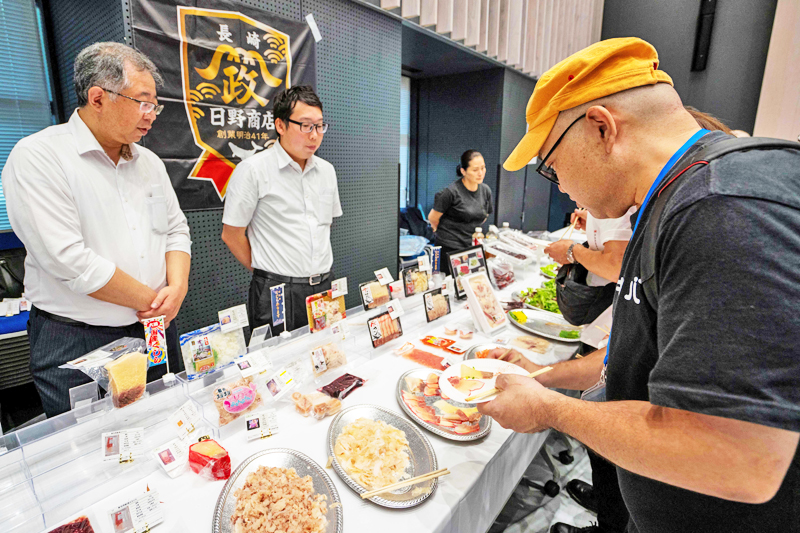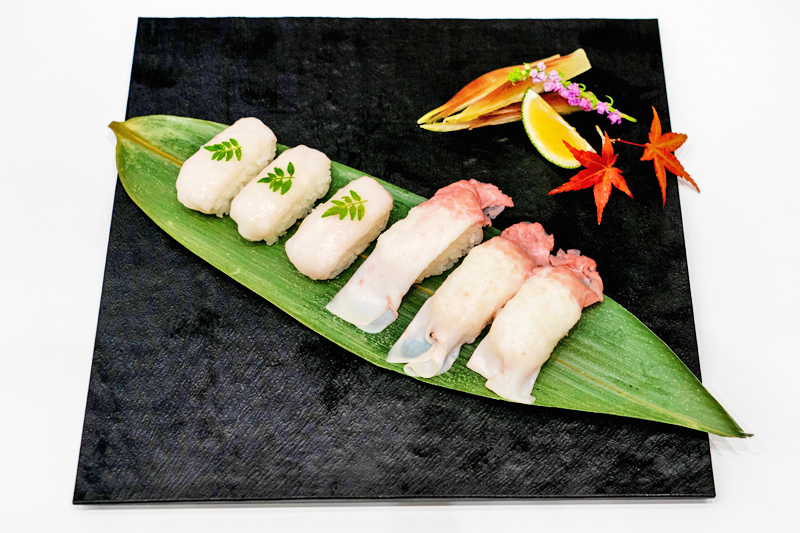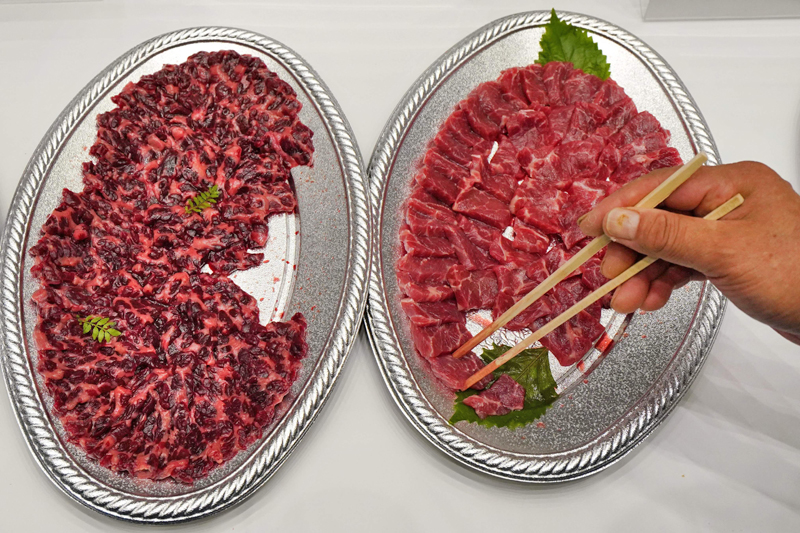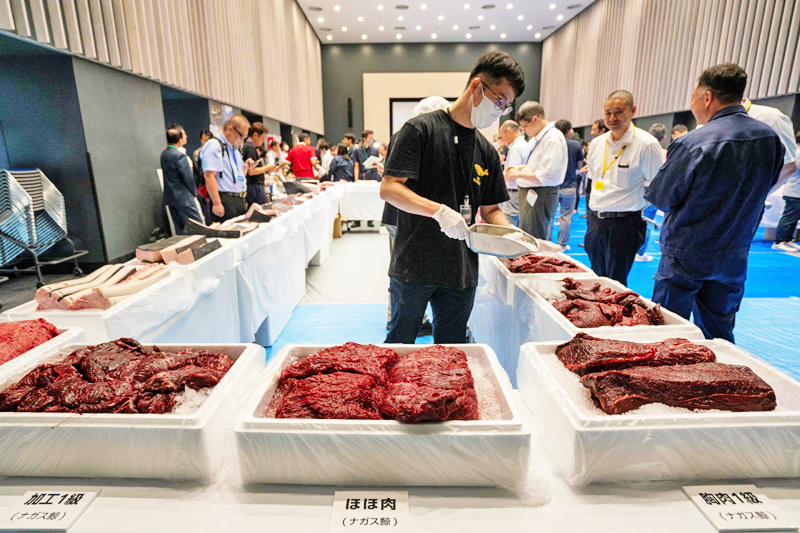TOKYO – Small portions of finned whale meat were made available for smell and taste on Friday last month as Japan’s whaling industry sought to revive appetite for a traditional protein source that was falling out of favor.
“When young people taste it and realize it’s good, they will eat more,” Hideki Tokoro, head of Japan’s main whaling firm, said at the event at Tokyo’s main fish wholesale market.
“People are excited about the fin whale, it’s really delicious,” he told AFP with whale-themed hats and jackets becoming his trademark.
Since 2019, Japan has been whaling in its own waters after stopping for scientific purposes in the Antarctic and North Pacific Oceans due to international pressure.
The catch list is limited to sei, minke and Bryde’s whales, but this year the fin whale, the second largest animal on the planet was added to the list and the first killed on August 1.




Tokoro firm Kyodo Senpaku hopes the taste of fin whale meat will revive demand and help them cover the cost of their new 9,300-tonne mothership.
Almost every part of the whale is on display, including pieces of liver, slices of tail and chunks of blubber.
With three-quarters of Japan’s land mountainous and unsuitable for agriculture, Japan has long relied on the sea, including whales, as an important source of food.
As imports of other meats have increased, consumption of whales has declined to around 1,000 to 2,000 tonnes per year compared to around 200 times in the 1960s.
Kyodo Senpaku last month released footage showing its first fin whale catch. The animal was almost 20 meters long and weighed about 55 tons.
Fin whales are considered endangered by the International Union for Conservation of Nature and Japan’s decision to catch them has raised concerns for conservationists.
Japan’s industry has come under extra scrutiny since the July arrest of US-Canadian anti-whaling activist Paul Watson, 73, in Greenland on a Japanese warrant.
Watson is a co-founder of Sea Shepherd, whose members were often involved in sea clashes with Japanese whaling ships in the 2000s and 2010s.
Anna Okada, a visitor to last month’s event who also runs a cafe in Yamanashi prefecture, said she was working to increase the appeal of whale meat to young people.
“Sasyimi and fried whale meat have an old-fashioned image that has a bad smell,” Okada said AFP.
“Popularity can spread quickly when people try it and find it delicious,” he said.
“If it’s sold from a young person’s perspective, like a casual, trendy and delicious taco, I think it will become popular very quickly.”
He also mentioned that some schools are starting to serve whale meat in their canteens, and products where the whale meat content is not as noticeable as in dumplings can increase demand.
Keita Ishii, another visitor who works at an izakaya pub in Tokyo famous for its meat satay was impressed by the event and came to enjoy another piece of whale meat. – AFP

